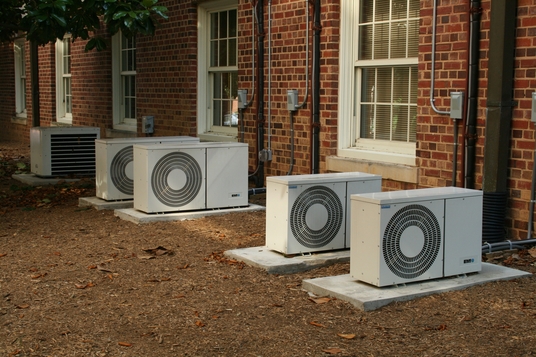How Air Conditioning Services Work in the U.S. — What to Know About Local HVAC Companies
HVAC systems are essential for comfort, especially in warmer states. This article explains how air conditioning companies operate across different U.S. regions and what factors matter most when comparing local service providers for installation, repair, or maintenance.

What Makes Licensed HVAC Companies in the U.S. Different
Licensed HVAC companies operate under strict regulatory frameworks that vary by state but generally require technicians to complete formal training, pass certification exams, and maintain continuing education credits. These licensing requirements ensure that contractors understand electrical systems, refrigeration principles, and safety protocols necessary for proper air conditioning work. Licensed companies also carry liability insurance and workers’ compensation coverage, protecting property owners from potential damages or injuries during service calls.
The licensing process typically involves completing an apprenticeship program or technical school coursework, followed by supervised field experience under master technicians. States like California, Texas, and Florida have particularly stringent requirements due to their high demand for air conditioning services and complex climate control needs.
Understanding Air Conditioning Installation and Repair Services
Air conditioning installation involves multiple phases, starting with load calculations to determine proper system sizing for specific spaces. Professional contractors assess factors including square footage, insulation quality, window placement, and local climate patterns to recommend appropriate equipment capacity. Installation teams then handle electrical connections, refrigerant lines, ductwork modifications, and system commissioning to ensure optimal performance.
Repair services address common issues including refrigerant leaks, compressor failures, electrical component malfunctions, and airflow restrictions. Experienced technicians use diagnostic tools to identify problems quickly, reducing service time and costs. Many companies offer emergency repair services for urgent situations, particularly during peak summer months when system failures create uncomfortable or potentially dangerous indoor conditions.
How to Choose a Local HVAC Contractor
Selecting reliable local HVAC contractors requires evaluating several key factors beyond basic licensing requirements. Property owners should verify contractor insurance coverage, check Better Business Bureau ratings, and review recent customer testimonials or online reviews. Established local companies often provide more personalized service and faster response times compared to large national chains.
Request detailed written estimates from multiple contractors, comparing not just pricing but also equipment specifications, warranty terms, and service timelines. Quality contractors provide transparent pricing without hidden fees and explain technical aspects in understandable terms. Look for companies that offer maintenance agreements, which typically include regular system inspections and priority scheduling for repairs.
Differences Between Residential vs Commercial AC Systems
Residential air conditioning systems typically use split-system configurations with outdoor condensing units and indoor air handlers or furnaces. These systems generally range from 1.5 to 5 tons of cooling capacity and serve individual homes or small multi-unit buildings. Residential installations often emphasize energy efficiency ratings and quiet operation to maintain comfortable living environments.
Commercial AC systems require more complex designs to handle larger spaces, higher occupancy loads, and diverse usage patterns. Many commercial installations use rooftop units, chilled water systems, or variable refrigerant flow technology to provide precise temperature control across different zones. Commercial systems also incorporate advanced monitoring capabilities and redundant components to minimize downtime that could affect business operations.
Comprehensive Air Conditioning Services Available
Modern air conditioning services extend beyond basic installation and repair to include indoor air quality improvements, energy efficiency upgrades, and smart thermostat integration. Many contractors now offer duct cleaning, air purification system installation, and humidity control solutions that enhance overall comfort and health benefits.
Preventive maintenance programs represent increasingly important service offerings, helping extend equipment lifespan and maintain manufacturer warranties. These programs typically include bi-annual system inspections, filter replacements, coil cleaning, and refrigerant level checks. Regular maintenance can improve system efficiency by 10-15% while reducing the likelihood of unexpected breakdowns during peak usage periods.
Air conditioning service costs vary significantly based on system type, local market conditions, and service complexity. Understanding typical pricing ranges helps property owners budget appropriately for their HVAC needs.
| Service Type | Typical Cost Range | Additional Considerations |
|---|---|---|
| Basic AC Installation | $3,000 - $7,000 | Varies by system size and complexity |
| Emergency Repair Service | $150 - $500 | After-hours calls may cost more |
| Annual Maintenance Contract | $200 - $600 | Often includes priority scheduling |
| Duct Cleaning Service | $300 - $800 | Based on home size and duct complexity |
Prices, rates, or cost estimates mentioned in this article are based on the latest available information but may change over time. Independent research is advised before making financial decisions.
Regional Considerations for HVAC Services
Climate differences across U.S. regions significantly impact air conditioning service requirements and equipment specifications. Southern states like Arizona, Texas, and Florida demand high-capacity systems capable of operating efficiently during extended periods of extreme heat. These regions also require contractors experienced with heat pump technology for year-round climate control.
Northern states prioritize systems that balance cooling capabilities with heating efficiency, often incorporating hybrid heat pump systems or traditional furnace combinations. Coastal areas must consider salt air corrosion effects on outdoor equipment, requiring specialized materials and more frequent maintenance schedules.
The air conditioning service industry continues evolving with technological advances and changing consumer expectations. Property owners benefit most from working with licensed local contractors who understand regional climate challenges and maintain current knowledge of equipment innovations. Quality service providers offer transparent pricing, comprehensive warranties, and ongoing support that ensures reliable comfort throughout the system’s operational lifetime.




